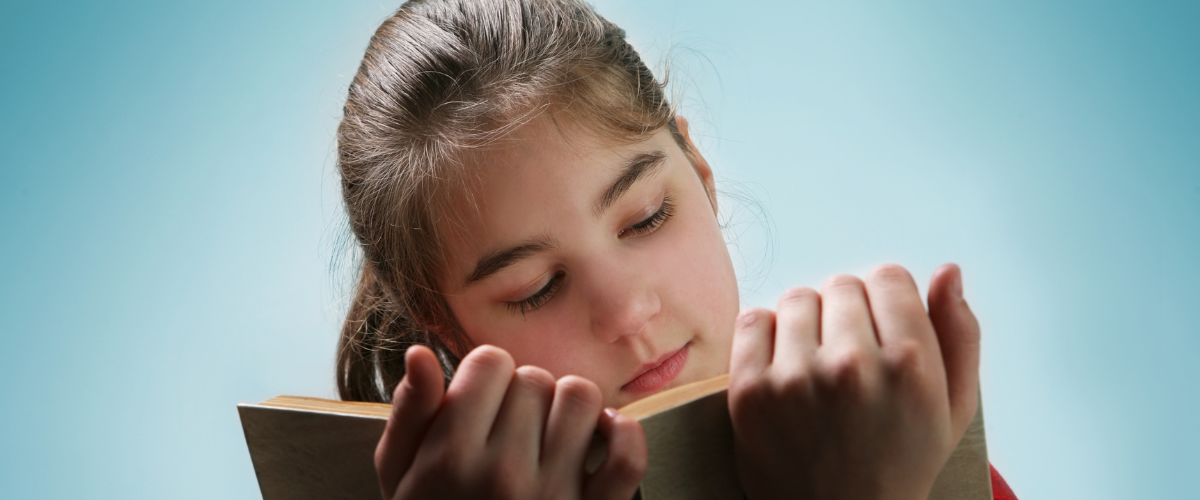Assigned Reading or Free Choice? The Illusion of Choice

Should students’ reading in school be assigned or left to free choice? Before choice can be valuable, our students must first know what they like to read. They must be exposed to a variety of genres, topics, and authors and have pleasurable reading experiences that lead them to the next book. Find out more in this blog article by Dr. Peter Dewitz.

When my wife and I go to dinner the menu scares her. She fears making a bad choice. The longer the menu the greater the anxiety. The fear comes from not knowing her mind and not knowing the chef’s skills. Does she want fish, or indulge the calories and eat pasta? Is the poached salmon better than the sea bass? Is the chef equally adept with pasta and grilled meats? Choice creates problems and too much choice is debilitating. At the end of the meal there is eater’s remorse. She thinks, maybe, she should have had the salmon.
In our democratic society, we value choice. Choice suggests freedom, personal responsibility, self-determination and autonomy. All are important values in our society. Therefore, in our economic and social life we value choice and the manufacturers respond by providing ever more choice. Today there are dozens of variations of cranberry juice – regular, light, diet, cran-apple, cran-grape, cran-raspberry, cranberry-mango, and so forth. Selecting a bottle requires a mental effort not worth the reward.
Too much choice creates a problem because choice requires knowledge. On what basis do we choose? In a now classic study, researchers set up jam displays in a supermarket and let people taste. In the display they had 20 jams, and many stopped to taste, but few ended up buying. There was too much to learn in a short time. In the three-item display fewer people stopped to sample but many more bought jam because there was less to learn.
An excess of choice leaves us with the nagging feeling that we could have done better. With fewer choices, economists tell us people are more satisfied. Let’s take what we know about choice into schools and examine students’ reading habits.

It is easy to believe that children become avid readers because they have freedom to select whatever they want to read. It is well acknowledged that choice motivates children to read. We are more likely to read what we want, not what is assigned. But this begs the question, do most students know what they want? It is unlikely that any student can walk into a library or bookstore and find her way to the just right book. Choice is driven by knowledge and experience. We choose from what we know. Genre, and familiarity with the author or topic drive most of our choices. So, choice is confined by a number of factors.
The development of the reading habit is dependent on knowledge. Knowledge comes from peers, personal experience and the teacher. If the book you are reading is part of a captivating series, the next book you read will be from that series. If you like the book you are reading, you will likely seek another book by the same author. When these personal experiences fail to lead you to the next book, the teacher can.
We read what our friends read. If your buddies are reading Rick Riordan, you might give Riordan a try. If your teacher recommends Laurie Halse Anderson, or better, reads aloud a chapter from Chains you are likely to pick up the same book.
Take a minute to engage in this mind experiment: Joe, a fifth-grade student, knows little about books and authors. Joe does not come from a family of readers, his friends do not read and his teacher shares little about books and authors. When Joe enters the school’s library and scans its 4,000 volumes, choice is almost unlimited. But without knowledge of the books, authors and the organization of the library, Joe does not know where to turn, or what to read next.
Total free choice leaves many students, like Joe, immobilized. With too many choices and the nagging fear that they might be picking wrong, many students choose not to choose and their visit to the library is for naught. As one bad experience leads to another the child’s view of reading becomes steadily more negative.
In school assigned reading is often a benefit and free choice a liability. Carefully assigned reading leads children to good books, interesting genres and exciting authors. From these assigned choices comes knowledge of genres and authors that lead to even better choices down the road. Children are able to make choices only after they have learned about books, genres and authors. Assigned reading builds that knowledge.

In the Read Side by Side Reading Program students develop a reading identity by identifying favorite genres, authors and topics. Motivation is increased in this novel based program.

Are you looking for a reading program to increase motivation and achievement?
We are confident the Read Side by Side Reading Program will be the right fit for your next curriculum adoption! To learn more about the program and request a sample kit, connect with one of our advisors!

Written by Peter Dewitz, Ph. D.
Director of Research



